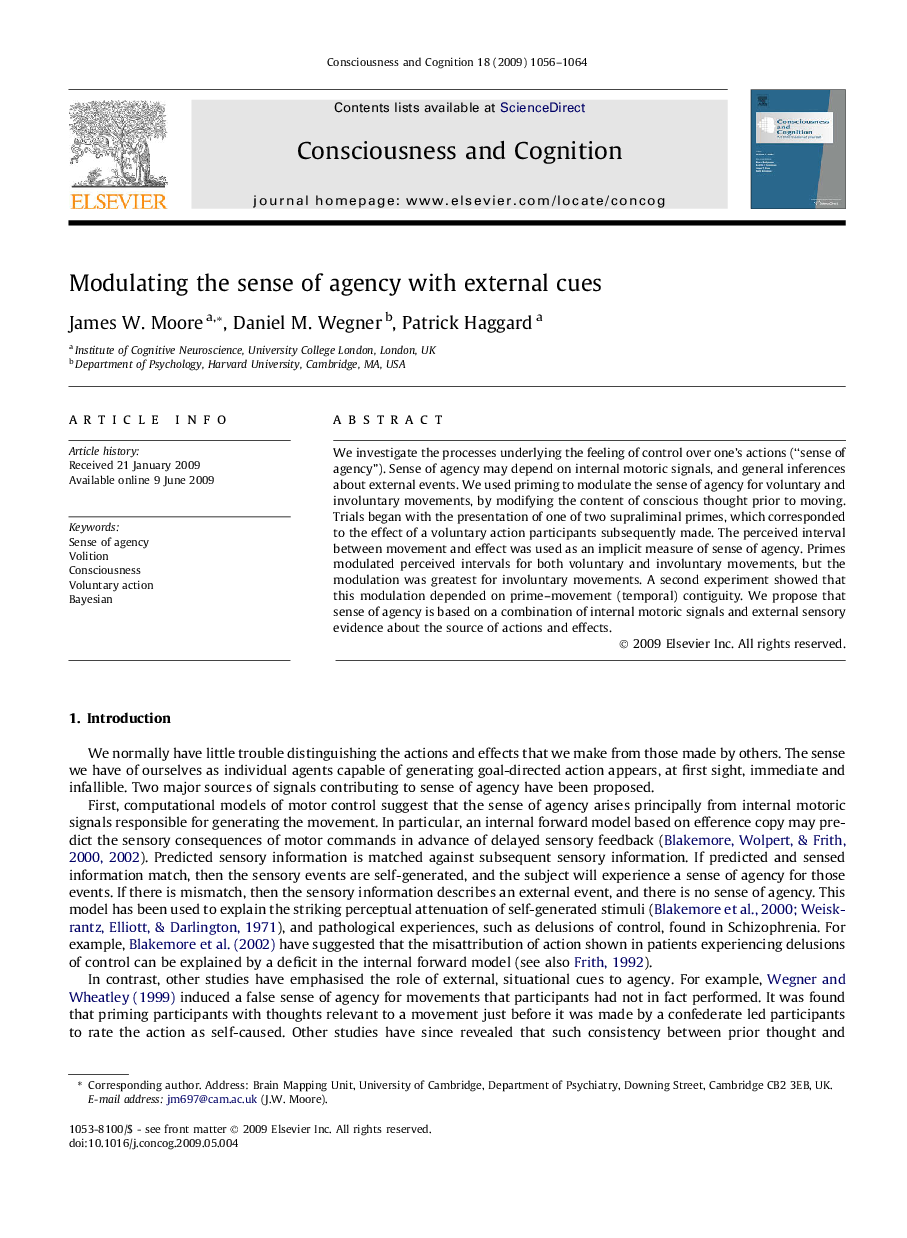| Article ID | Journal | Published Year | Pages | File Type |
|---|---|---|---|---|
| 10458750 | Consciousness and Cognition | 2009 | 9 Pages |
Abstract
We investigate the processes underlying the feeling of control over one's actions (“sense of agency”). Sense of agency may depend on internal motoric signals, and general inferences about external events. We used priming to modulate the sense of agency for voluntary and involuntary movements, by modifying the content of conscious thought prior to moving. Trials began with the presentation of one of two supraliminal primes, which corresponded to the effect of a voluntary action participants subsequently made. The perceived interval between movement and effect was used as an implicit measure of sense of agency. Primes modulated perceived intervals for both voluntary and involuntary movements, but the modulation was greatest for involuntary movements. A second experiment showed that this modulation depended on prime-movement (temporal) contiguity. We propose that sense of agency is based on a combination of internal motoric signals and external sensory evidence about the source of actions and effects.
Related Topics
Life Sciences
Neuroscience
Cognitive Neuroscience
Authors
James W. Moore, Daniel M. Wegner, Patrick Haggard,
